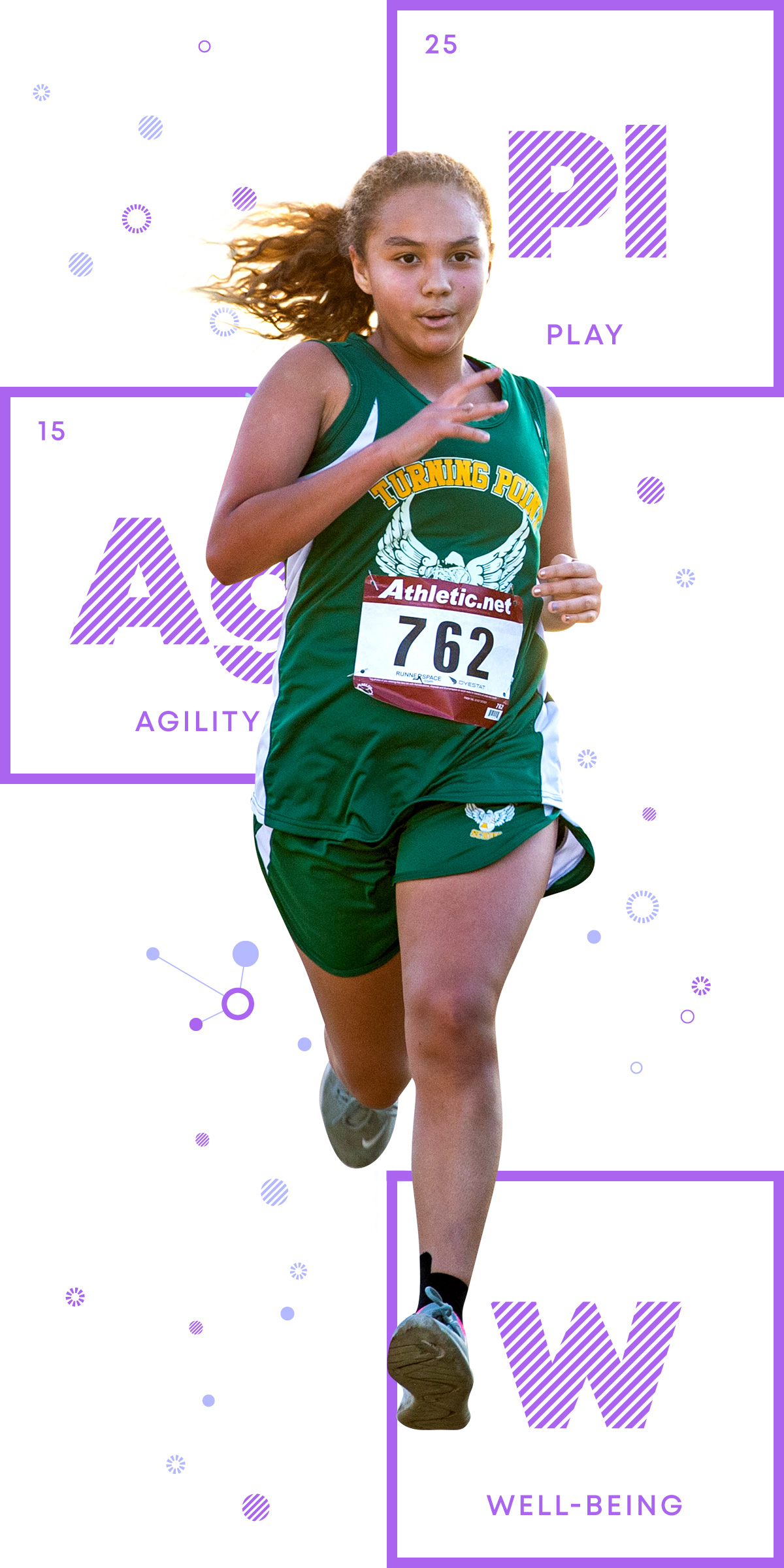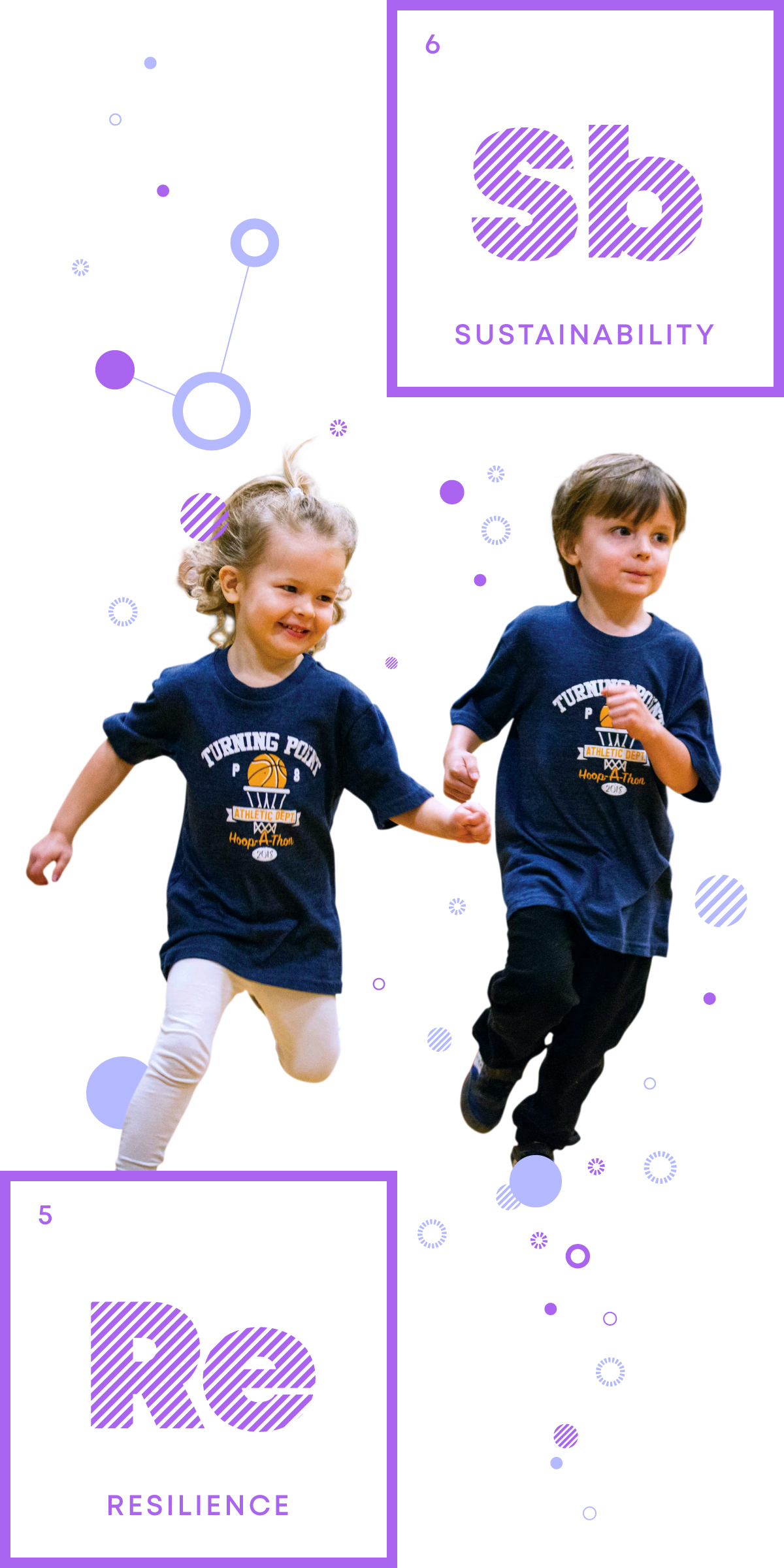
Play
Play is not just about having fun. In essence, play provides natural opportunities for humans to build social skills and navigate the ups and downs of friendship. The engagement and connection that develops between adults and children during play also buffers children against the downsides of stress. A clinical report from the American Academy of Pediatrics shows that play is an essential element of growth for children of all ages.
Agility
Agility is a key to both physical and mental wellness. It’s no surprise that the more we move our bodies, the more malleable our minds become. Physical activity increases the amount of endorphins—the “feel-good” neurotransmitters—in your brain. Likewise, people who are developing agility remain calm in the face of difficulty, take time to reflect on their experiences, and are more apt to challenge the status quo.
Well-Being
We foster well-being in our students by encouraging their participation in activities that strengthen both body and mind. Students form a positive view of themselves and enjoy constructive relationships when they are in a safe and healthy school environment. At Turning Point, we know that a physically active lifestyle leads to a higher level of mental and emotional health.
Sustainability
In a world of limited resources and unlimited ingenuity, schools can play a vital role in preparing students to meet the sustainability challenges of the future. As early as Preschool, our students display an eagerness to take ownership of environmental issues. By being responsible for personal waste (compost, recycling, etc.) and practicing conservation school-wide, students not only learn good habits, but think deeply about how present choices impact the ability of future generations to meet their own needs.
Resilience
Resilience—the ability to pick oneself up and get back in the game after a setback—is crucial to advancing in school and life. At Turning Point, we foster physical and mental resilience by nurturing students’ ability to self-regulate and desire to endure despite disappointment or frustration. When students feel comfortable and supported, their self-perceptions become more positive; as they grow confident and resilient, they take the risks needed to achieve.

































